Professor Cesare Pozzi, GRIF Fabio Gobbo, LUISS University, Rome
Extraordinary measures are needed to ensure the competitiveness of aluminium companies, especially in support of downstream SMEs in those European countries where the lockdown has forced production to stop
After almost five years of work on the aluminium sector conducted by the Industrial and Financial Research Center “Fabio Gobbo”, LUISS University, Rome, which gave rise to two comprehensive reports dedicated in particular to the competitiveness of European downstream companies in the sector and the problems of access to raw materials, I am following with great interest what is happening in this important industrial segment as a result of the Covid-19 problem, and I hope that the Eurogroup will be able to find a uniform and supportive response to an unprecedented economic crisis, which is putting many European industries to the test.
Companies in the industry are suffering severe economic damage as a result of the Covid-19 emergency, particularly in those European countries which have adopted more stringent lockdown measures. In Italy, for instance, for some segments of the aluminium downstream sector there has been a drop in production of about 50% and it is cautiously estimated that total consumption of light metal in 2020 could amount to 1.6-1.7 million tonnes, which would set the industry back at least ten years. The absence of an agreement on intervention instruments at EU level and the need for some of the EU countries most affected by the Covid-19 emergency to adopt a total production shutdown is adding the consequences of asymmetric competition, particularly to the detriment of the many small and medium-sized enterprises temporarily shut in the downstream processing and transformation segment – which represent the main part of the aluminium industrial chain, accounting for over 90% in terms of overall employment.
Green New Deal and suspension of tariffs on raw aluminium
Pending a negotiation which places the future of the Union at stake, I believe that EU institutions are called upon to give a signal of presence and proximity by supporting small and medium-sized enterprises in the aluminium sector, a segment which is essential for many European industries and for the environmental sustainability objectives of the EU. Based on our recent studies, I believe that a fundamental intervention in this direction could be adopted immediately without the need to allocate additional resources, and this is the suspension of tariffs on raw aluminium for subsequent processing and manufacturing stages. This would reduce the production costs of downstream companies, limiting plant closures and/or downward trends detrimental for workers and helping competitiveness on both domestic and foreign markets.
This measure should be accompanied by specific instruments to support producers of secondary aluminium from recycled metal, helping these virtuous companies in all projects and activities aimed at optimising the recovery and recycling process from the metallurgical, technological and logistical-organisational standpoints. The combination of these measures, which take on particular relevance at this time in the context of the Coronavirus emergency, may find an interesting correspondence in the stand which the European Commission chose to take by setting up the Green Deal for an innovative governance of globalization and the fight against environmental and climate degradation, a path which, as may be read in the policy document, will be strongly focused on the development of SMEs.

